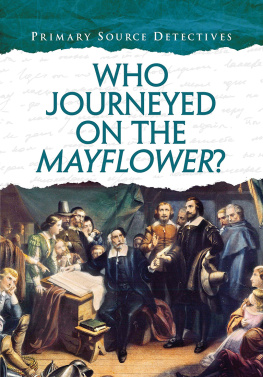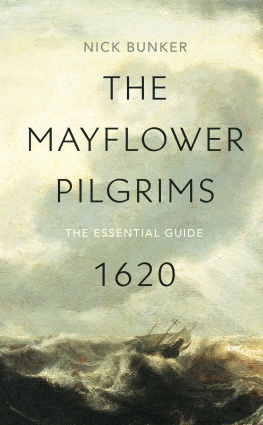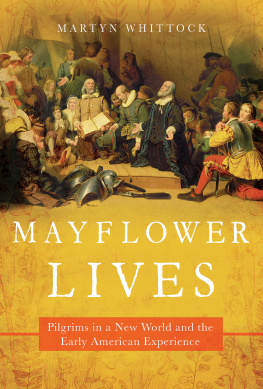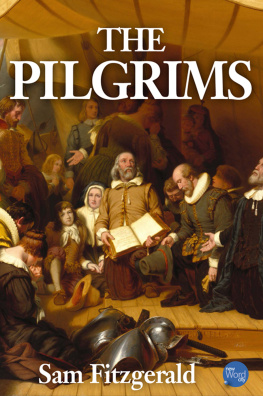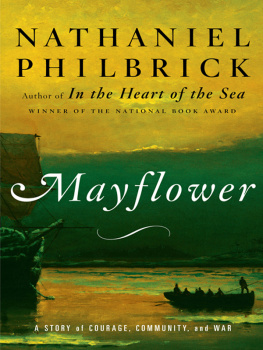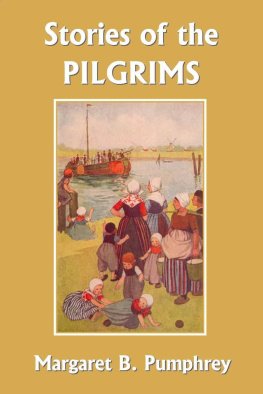THE
ROMANTIC STORY
of the
MAYFLOWER PILGRIMS
AND
ITS PLACE IN LIFE TODAY
By
ALBERT C. ADDISON
WITH INTRODUCTORY POEMS BY
HENRY WADSWORTH LONGFELLOW
AND JOHN GREENLEAF WHITTIER
First published in 1911
Copyright 2020 Read & Co. History
This edition is published by Read & Co. History,
an imprint of Read & Co.
This book is copyright and may not be reproduced or copied in any
way without the express permission of the publisher in writing.
British Library Cataloguing-in-Publication Data
A catalogue record for this book is available
from the British Library.
Read & Co. is part of Read Books Ltd.
For more information visit
www.readandcobooks.co.uk
"High ideals in the conduct of life are what survive,
and that is why the Pilgrim Narrative stands forth
in the pages of every history as one of the great events
of the time."
Sen ator Lodge,
At the dedication of the Pilgrim Memorial Monument at Provincetown, Augustth 1910
Contents
Illustrations
The Mayflower in Plym outh Harbour
The Cells, Guild hall, Boston
A Bit of Old G ainesborough
The Old Manor House, Scrooby, where William Brews ter was Born
Sc rooby Church
The Cottage at Austerfield where William Bradf ord was Born
The Old Hall, Gainsborough, in which the Separatist Church was Fou nded in 1602
Guildhall and South St reet, Boston
The Old Courtroom, Guild hall, Boston
The River Wi tham, Boston
The Pilgrim Cells, Guildhall, Boston, Showing the Ki tchen Beyond
Old Town Gaol, Market-P lace, Boston
Trentside, Gainsborough
Elder Will iam Brewster
John Robinson's House, Leyden, where the Pilgrim Father s Worshipped
St. Peter's Ch urch, Leyden
Bust of Captai n John Smith
The Embarkation of the Pilgrims
Model of t he Mayflower
Plymouth Harbour, as Seen from Cole's Hill
The Landing of the Pilgrims
The March of Mi les Standish
The Canopy Over P lymouth Rock
The Old Fort and First M eeting House
Pilgrims Goi ng to Church
The Departure of t he Mayflower
Captain Mi les Standish
Governor Will iam Bradford
The Pilgrim Memorial Monument at Provincetown
P lymouth Rock
A Bit o f Old Boston
The Site of the Old Fort, Burial Hi ll, Plymouth
First Chur ch, Plymouth
The Pilgrim Fathers' Memori al, Plymouth
John Alden and Prisc illa Mullins
Governor Bradford's Monument, Burial Hi ll, Plymouth
Governor Carver's Chair and Ancient Sp inning Wheel
Elder Brewster's Chair and the Cradle of Per egrine White
The Grave of John Howland
The Grave of Miles Stand ish, Duxbury
The Miles Standish Monum ent, Duxbury
Mayflower Tablet on the Barbican, Plymo uth, England
Governor Ed ward Winslow
Scr ooby Village
The Ancient Kitchen, Guild hall, Boston
Robinson Memorial Church, Gainsborough
Memorial Tablet on St. Peter's Church, Leyden and Tablet in Vestibule of Robinson Memorial Church, Gainsborough
Design by R. M. Lucas for the Tercentena ry Memorial
The Font, Auster field Church
The Font, Primitive Methodist C hapel, Lound
THE SAILING
OF THE MAY FLOWER
By Henry Wadsworth Longfellow
Just in the gray of the dawn, as the mists uprose from the meadows,
There was a stir and a sound in the slumbering village of Plymouth;
Clanging and clicking of arms, and the order imperative, "Forward!"
Given in tone suppressed, a tramp of feet, and then silence.
Figures ten, in the mist, marched slowly out of the village.
Standish the stalwart it was, with eight of his valorous army,
Led by their Indian guide, by Hobomok, friend of the white men,
Northward marching to quell the sudden revolt of the savage.
Giants they seemed in the mist, or the mighty men of King David;
Giants in heart they were, who believed in God and the Bible,
Ay, who believed in the smiting of Midianites and Philistines.
Over them gleamed far off the crimson banners of morning;
Under them loud on the sands, the serried billows, advancing,
Fired along the line, and in regular order retreated.
Many a mile had they marched, when at length the village of Plymouth
Woke from its sleep, and arose, intent on its manifold labors.
Sweet was the air and soft; and slowly the smoke from the chimneys
Rose over roofs of thatch, and pointed steadily eastward;
Men came forth from the doors, and paused and talked of the weather,
Said that the wind had changed, and was blowing fair for the Mayflower;
Talked of their Captain's departure, and all the dangers that menaced,
He being gone, the town, and what should be done in his absence.
Merrily sang the birds, and the tender voices of women
Consecrated with hymns the common cares of the household.
Out of the sea rose the sun, and the billows rejoiced at his coming;
Beautiful were his feet on the purple tops of the mountains;
Beautiful on the sails of the Mayflower riding at anchor,
Battered and blackened and worn by all the storms of the winter.
Loosely against her masts was hanging and flapping her canvas,
Rent by so many gales, and patched by the hands of the sailors.
Suddenly from her side, as the sun rose over the ocean,
Darted a puff of smoke, and floated seaward; anon rang
Loud over field and forest the cannon's roar, and the echoes
Heard and repeated the sound, the signal-gun of departure!
Ah! but with louder echoes replied the hearts of the people!
Meekly, in voices subdued, the chapter was read from the Bible,
Meekly the prayer was begun, but ended in fervent entreaty!
Then from their houses in haste came forth the Pilgrims of Plymouth,
Men and women and children, all hurrying down to the sea-shore,
Eager, with tearful eyes, to say farewell to the Mayflower,
Homeward bound o'er the sea, and leaving them here in the desert.
Foremost among them was Alden. All night he had lain without slumber,
Turning and tossing about in the heat and unrest of his fever.
He had beheld Miles Standish, who came back late from the council,
Stalking into the room, and heard him mutter and murmur,
Sometimes it seemed a prayer, and sometimes it sounded like swearing.
Once he had come to the bed, and stood there a moment in silence;
Then he had turned away, and said: "I will not awake him;
Let him sleep on, it is best; for what is the use of more talking!"
Then he extinguished the light, and threw himself down on his pallet,




